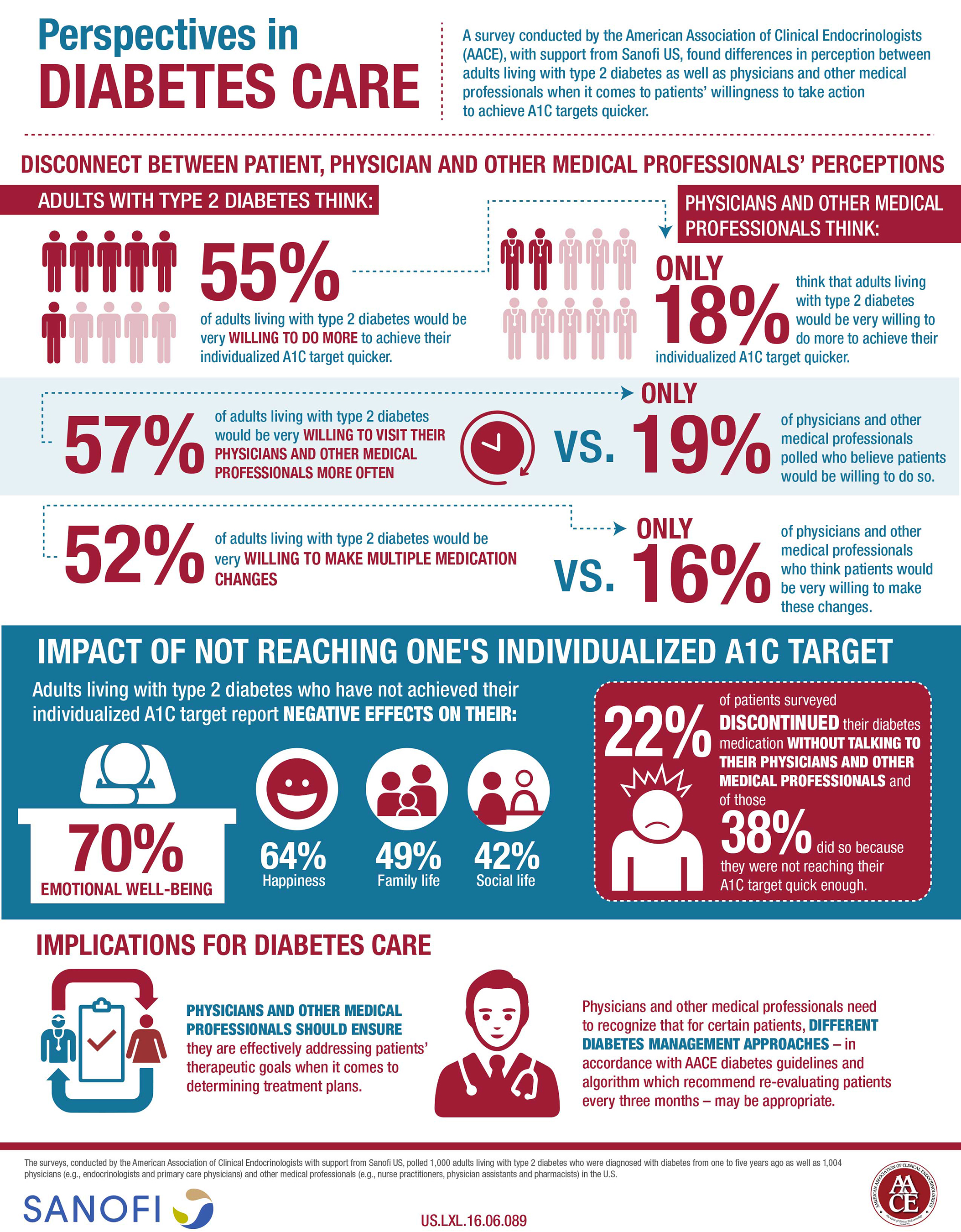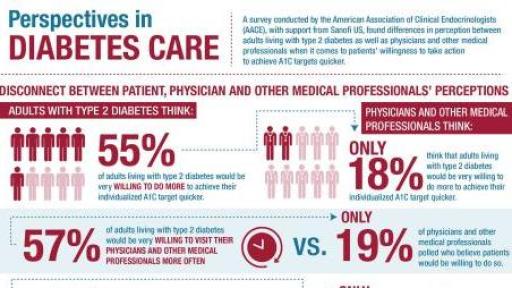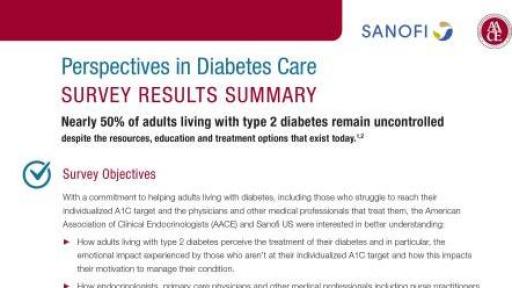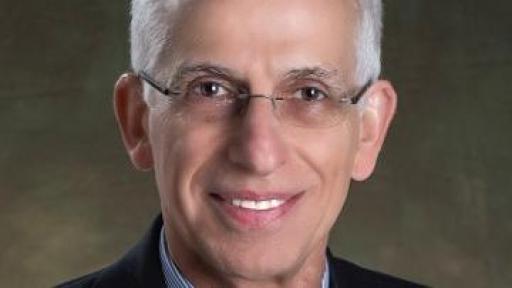Perspectives in Diabetes Care
Surveys Find Adults with Type 2 Diabetes Are More Willing to Take Action to Achieve A1C Targets Quicker than Physicians and Other Medical Professionals Perceive
-- Findings reveal that some patients are frustrated and discontinued medication because they were not reaching their individualized A1C target quick enough --
PR Newswire, Jacksonville, FL – July 20, 2016
The American Association of Clinical Endocrinologists (AACE) today announced results of two online surveys, conducted with support from Sanofi US, that identified differences in perceptions among adults living with type 2 diabetes as well as endocrinologists, primary care physicians and other medical professionals including nurse practitioners, physician assistants and pharmacists. The Perspectives in Diabetes Care surveys revealed that patients are more willing to take action to reach their individualized average blood glucose, or A1C, targets quicker than physicians and other medical professionals believe. More than half of adults living with type 2 diabetes polled are very willing to visit their physicians and other medical professionals more often and make multiple medication changes in order to achieve their A1C targets quicker, while less than one in five physicians and other medical professionals believe that patients would be very willing to take these actions.
Specifically, these findings reveal:
- While 57 percent of adults living with type 2 diabetes would be very willing to visit their physicians and other medical professionals more often, only 19 percent of physicians and other medical professionals polled believe they would be willing to do so.
- In addition, 52 percent of adults living with type 2 diabetes would be very willing to make multiple medication changes, though only 16 percent of physicians and other medical professionals think they would be very willing to make these changes.
“The disconnect uncovered by these surveys illustrates that patients are frustrated by not achieving their A1C target and are willing to accelerate the treatment process if it means reaching it more quickly,” said George Grunberger, M.D., FACP, FACE, Immediate Past President, American Association of Clinical Endocrinologists (AACE). “Physicians should ensure they are effectively addressing patients’ therapeutic goals when it comes to determining treatment plans, and recognize that for certain patients, early and intensive treatment – in accordance with the AACE diabetes guidelines and algorithm, which recommend re-evaluating patients every three months and intensifying diabetes treatment if their A1C is not at target – is the appropriate approach.”
These differing perceptions could play a role in the length of time it takes some patients to achieve their individualized A1C targets. The implications could be significant as more than 42 percent of patients surveyed have yet to achieve their A1C target and 77 percent of these respondents want to achieve it more quickly.
Frustration Grows as Time Increases
For respondents who had yet to achieve their individualized A1C target, frustration levels doubled after one year of treatment compared to after three months of treatment.
- Among patients surveyed, 22 percent have stopped taking their diabetes medication without talking to their physician or other medical professional; and
- Of those, more than one-third (38 percent) reported doing so because they were not reaching their A1C target quick enough, contributing to additional challenges for the physicians and other medical professionals responsible for their care.
“These findings demonstrate the importance of ensuring that patients, physicians and other medical professionals are collaboratively addressing the challenges that exist in reaching as well as maintaining glycemic control, and considering different approaches where appropriate,” said Chris Kaplan, North America Region Head, Diabetes & Cardiovascular Business Unit, Sanofi. “Our collaboration with AACE underscores our commitment to the clinicians who treat patients with diabetes and addressing their unmet needs.”
Physicians and other medical professionals can visit the Glycemic Explorer website at www.glycemicexplorer.com to learn more about why a proactive approach to treatment might be right for some type 2 diabetes patients.
About the Surveys
The surveys polled 1,000 adults living with type 2 diabetes who were diagnosed with diabetes from one to five years ago as well as 1,004 physicians (e.g., endocrinologists and primary care physicians) and other medical professionals (e.g., nurse practitioners, physician assistants and pharmacists) in the U.S.
About AACE
The American Association of Clinical Endocrinologists is a professional community of physicians specializing in endocrinology, diabetes and metabolism committed to enhancing the ability of its members to provide the highest quality of patient care. With headquarters in Jacksonville, Florida, AACE has over 6,500 members in the United States and 90 other countries.
Media Contacts
Glenn Sebold
Telephone: (904) 353-7878 ext. 122
Email: [email protected]
Jenny Bickel
Telephone: (404) 682-7243
Email: [email protected]
US.LXL.16.06.087
SOURCE: AACE and Sanofi USUS.LXL.16.06.088





